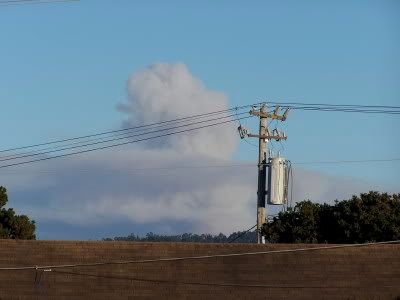This past Tuesday, July 1st, marked the day when 46 states begin Fiscal Year 2009 and 29 states and the District of Columbia started facing a combined budget shortfall of $48 billion according to the Center on Budget and Policy Priorities. And because the federal government still hasn’t gotten around to assembling a fiscal package to help the states, many economic dominoes are about to fall.
So what are some of the casualties of the FY 2009 budget balancing?
Tapping out the reserve fund. I wrote about it a month ago and it remains true today; states are being forced to raid their reserve funds. Business Week doesn’t think this is a great idea:
But in many cases they’re tapping out the reserve funds for the coming budgets and might need to make tougher choices when they put together their 2010 spending plans, especially if the economy worsens.
Massive health care costs Many states have been forced to consider slashing health care budgets. The Sacramento Bee paints the picture for California residents if the Governator and the state Senate’s “compromise” on health care is passed:
To save $92 million in the budget, Schwarzenegger wants to reinstate a rule that families on Medi-Cal submit paperwork every three months to prove their eligibility, instead of every 12 months.
About 150,000 children are expected to lose coverage this year – and 470,000 eventually – because their families either fail to file the required forms or they can’t meet the program’s eligibility rules.
School budgets in a state of flux. Highly touted increases in education are in flux as states recognize the true weight of their budget shortfalls. State lawmakers in Illinois increased the minimum spending on each student by $225, but according to the Chicago Daily Herald the Governor may not be able to deliver on this promise:
The governor has already publicly threatened to slash $1.5 billion and order agencies to hold back another $500 million to balance spending unless lawmakers return to Springfield and come up with more money.
This would include a $110 million cut in education spending. Illinois is not alone. Nevada just passed a bill that cuts school textbook spending by $48 million.
More criminals on the street. Sky rocketing gas prices combined with a tightening of the budget belt has led to impossible decisions for law enforcement agencies. Not everyone can simply have officers walk their beats to save money. In places like sprawling El Paso County their only option is leaving more criminals on the streets:
(Sheriff) Maketa initially switched to two deputies per car. Then he forbade idling vehicles. Neither led to big enough savings. This month, he decided to end all patrols to save money, though he predicts his deputies will catch fewer drunken drivers and fewer suspects with outstanding warrants. The department will reassess the end of patrols if it finds there is a serious effect on public safety.
This week will not mark the date of some apocalyptic change in the American way of life. The average American citizen probably didn’t wake up today with more criminals roaming the streets, no health care, and their kids attending a dilapidated run down school. Unless of course they are one of too many Americans who faced these conditions even before the economy began to sink.
Gradually though things will come into focus.I wrote last week that the deeper the economic hole, the more federal spending will be required to help us get out of it. Well today’s the day we start stepping into that $48 billion hole.

